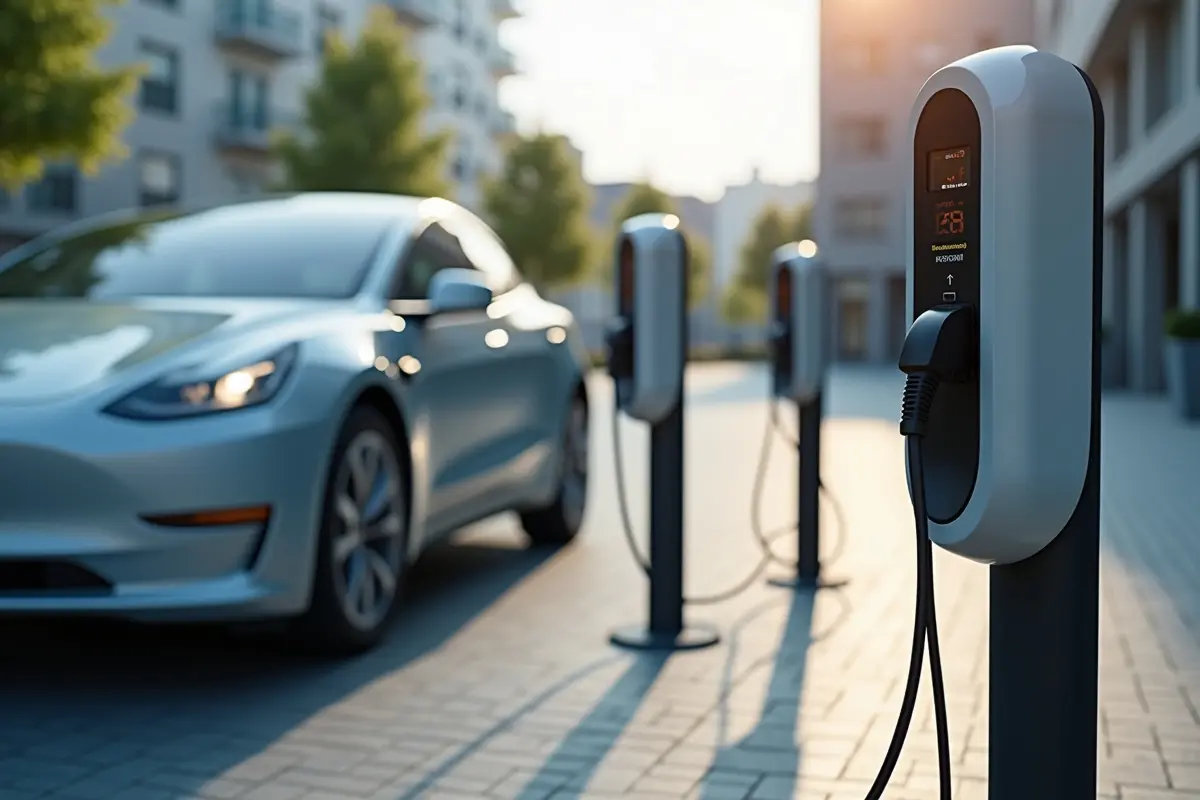Choosing the Right Electric Car Charging Station: Key Factors to Consider
Driving an electric vehicle (EV) is a smart move for the environment and your wallet, but figuring out the right charging station for your needs? That can feel overwhelming. With so many options on the market, it’s easy to get lost in the technical details.
But don’t worry—choosing the best EV charger doesn’t have to be complicated. Whether you’re looking for a home charging setup or something for a business, a few key factors will help you make the right decision.
Understanding the Different Types of EV Chargers
Before you find the best EV charging stations for your vehicle, it’s important to know the three main types of EV chargers so you can pick the right one. After all, the one you choose depends on how fast you need to charge and where you plan to install it.
Level 1 Chargers – Slow and Steady
Level 1 chargers come standard with most electric cars and plug into a regular household outlet (120V). They’re the slowest option, typically adding 3-5 miles of range per hour. If you drive occasionally or have plenty of time to charge overnight, this might work. But for daily commuters or those with longer trips, it’s not the most practical option.
Level 2 Chargers – The Most Popular Choice
Level 2 chargers require a 240V outlet (similar to what large appliances use) and can add 25-50 miles of range per hour. These are ideal for home use, as well as workplaces and commercial properties. If you want faster charging without jumping to more expensive, high-powered options, a Level 2 station is a solid choice.
DC Fast Chargers – Rapid Charging on the Go
DC fast chargers (sometimes called Level 3) are the quickest, capable of charging an EV up to 80% in around 30 minutes. These are typically found at public charging stations rather than in homes. They’re great for road trips and fleet operations but aren’t necessary for most everyday charging needs.
Key Factors to Consider When Choosing a Charging Station
Now that you know the basics, it’s time to figure out which charger fits your needs best. Here’s what to consider:
1. Charging Speed – How Fast Do You Need to Charge?
Charging speed is a major factor in your decision. If you need a quick top-up overnight, a Level 2 charger is ideal for most home setups. Businesses or public spaces might need faster solutions to accommodate multiple users. Look at your daily driving habits—how many miles do you typically drive per day? This will help determine the right charging speed for you.
2. Installation Requirements – Do You Have the Right Setup?
A Level 2 charger requires a dedicated 240V circuit, which means you may need an electrician to install the right outlet. Check your home’s electrical capacity before purchasing, as some older properties may require an upgrade to handle the extra load. If you’re installing a charger at a workplace or apartment complex, consider how many stations you’ll need and whether your existing electrical system can support them.
3. Smart Features – Do You Want More Control?
Many modern charging stations come with smart features, allowing you to track usage, schedule charging times, and even integrate with solar panels or home energy management systems. Some also offer mobile apps that let you monitor charging remotely. While these features aren’t essential, they can make charging more efficient and convenient.
4. Plug-In vs. Hardwired – What’s Best for You?
EV chargers can be either plug-in models (which use an outlet) or hardwired (which are permanently installed). Plug-in models are great if you plan to move or want flexibility, while hardwired stations tend to be more secure and weather-resistant for outdoor installations.
5. Connector Compatibility – Will It Work with Your Car?
Most EVs in the US use a standard J1772 connector for Level 1 and Level 2 charging, meaning almost any charger will work. However, Tesla owners will need an adapter unless using a Tesla-specific charger. For DC fast charging, check whether your car uses CHAdeMO, CCS, or Tesla’s proprietary connector.
6. Location – Indoor or Outdoor?
If you plan to install your charger outside, make sure it’s weatherproof and rated for outdoor use. Look for chargers with durable casings and good protection against rain, snow, and extreme temperatures. Indoor installations don’t require as much weather resistance but still need proper ventilation and access to a power source.
7. Cost – What’s Your Budget?
The cost of an EV charging station varies widely, depending on power output, features, and installation complexity. Here’s a general idea:
- Level 1 Chargers: Typically included with the vehicle
- Level 2 Chargers: $300 – $800 for the unit, plus $500 – $2,000 for installation
- DC Fast Chargers: $10,000+ (mostly used for commercial purposes)
Don’t forget to check for rebates, tax credits, or utility incentives that could help offset costs. Many states and local governments offer incentives for installing home or business EV chargers.
8. Brand and Reliability – Choosing a Trusted Option
Not all charging stations are created equal. Look for models with solid warranties, positive reviews, and a good track record of reliability. If you’re installing a charger at a business or apartment complex, choosing a reputable brand can reduce maintenance headaches down the road.
Final Thoughts: Making the Right Choice for Your Needs
Choosing an electric car charging station isn’t just about picking the fastest option—it’s about finding the right fit for your lifestyle. Whether you need a simple home charger for overnight charging or a high-powered solution for a commercial property, considering factors like speed, installation requirements, and smart features will help you make the best choice.
Take the time to assess your needs, check your home’s electrical capacity, and explore available incentives. Once your EV charger is set up, you’ll enjoy the convenience of powering your vehicle at home, saving time and money while contributing to a cleaner future.

